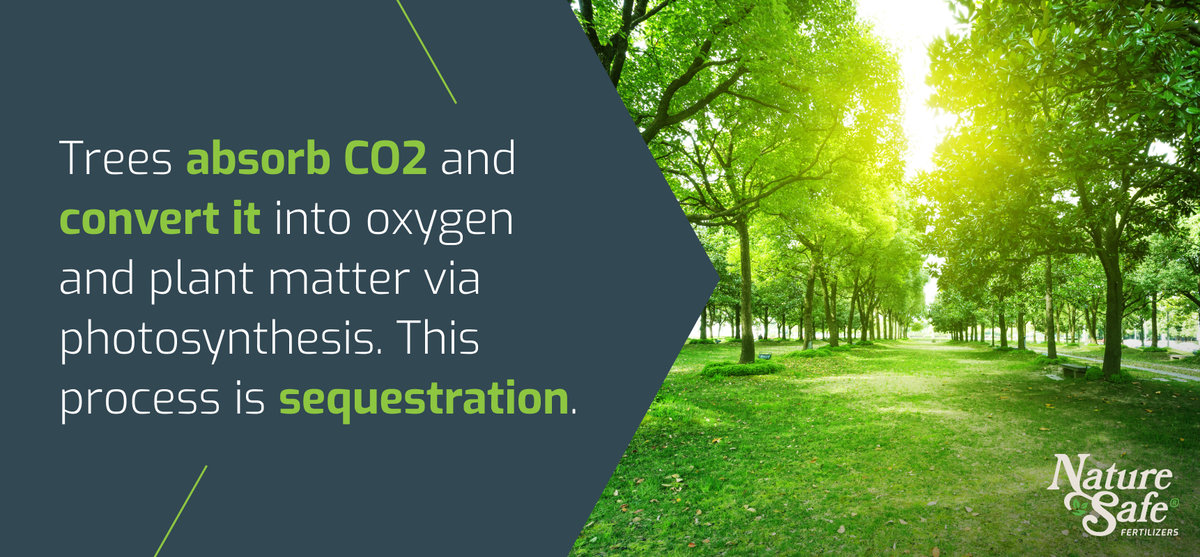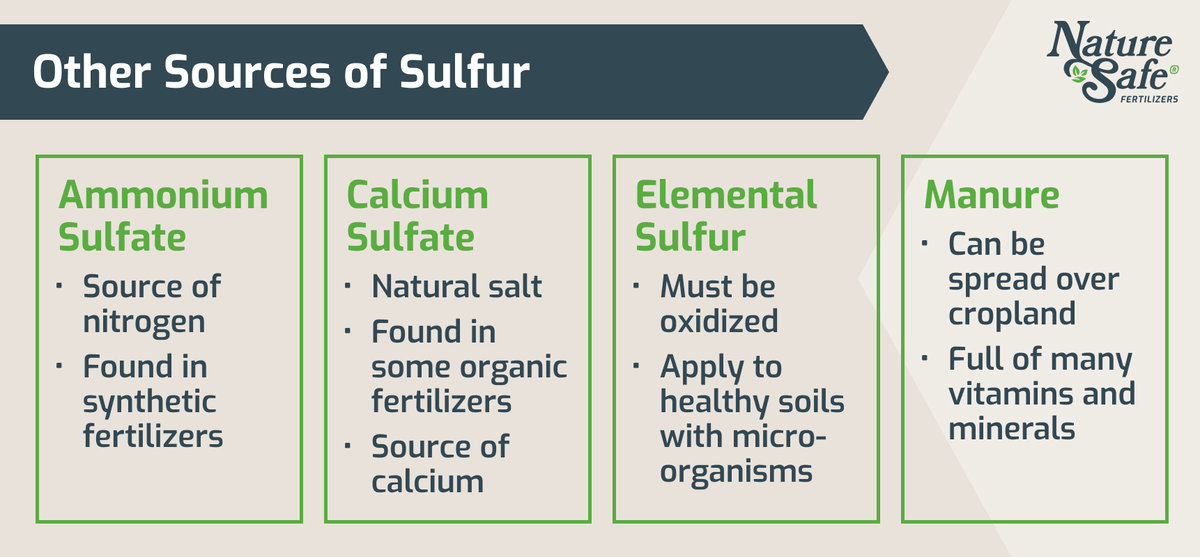
The Benefits of Sulfur in Your Fertilizer
What it Has to Do With You
- Posted: Jan 05, 2023
- Author: Nature Safe Fertilizers
- Environment
Generally, people differentiate fertilizers by their NPK (nitrogen, phosphorus, potassium) ratios. Known as the “big 3,” nitrogen, phosphorus, and potassium provide vital nutrients for healthy crops and fertile soil.
What sets organic fertilizers apart is that their ingredients come from natural materials that contain other nutrients needed for growth (though in much smaller quantities). One such nutrient is sulfur.
What Does Sulfur Bring to the Table?
Sulfur is the renaissance man of nutritional elements. It’s vital in the formation of amino acids and oils. Agronomists recommend using sulfur-rich fertilizer for oilseed crops like soy, cottonseed, and sunflowers. Sulfur also aids in creating chlorophyll, which is responsible for green foliage and photosynthesis.
Sulfur and Nitrogen
You’re right if you feel like sulfur and nitrogen perform many of the same duties in plant growth. Both are needed to create amino acids, proteins, and chlorophyll. Plants that require a lot of nitrogen may also need a lot of sulfur. Young plants generally need their highest dosage of nitrogen and sulfur in their early growth stages.
However, sulfur is less volatile than nitrogen, making it less vulnerable to evaporation. When applied in liquid form, evaporation is rarely an issue.

Sulfate of Potash Fertilizer
Sulfate of potash is otherwise known as potassium sulfate (K2SO4 ). While it does provide sulfur, growers commonly use sulfate of potash as a source of potassium for their crops.
Potash used to be created by percolating wood ashes through water. Now, it’s sourced naturally from concentrations of salts and minerals in ancient seabeds. Some of these salts also contain sulfur, which combines with the potash to create potassium sulfate. To this day, the Great Salt Lake in Utah is mined for potassium sulfate.
Other Sources of Sulfur
Sulfate of potash delivers a significant amount of phosphorus and a fair amount of sulfur. However, there are other ways to ensure that crops meet their nutritional needs.
Ammonium Sulfate Fertilizer
Growers use ammonium in fertilizers as a source of nitrogen. Ammonium is a natural waste product of many soil organisms. You get ammonium sulfate when combining ammonium with sulfuric acid, usually from by-products of other manufacturing processes. However, due to its manufactured nature, it’s primarily found in synthetic fertilizers.
Calcium Sulfate Fertilizer
Also known as gypsum, calcium sulfate is a natural salt in some organic fertilizers. As the name suggests, it also provides calcium to plant structures and cell walls. It’s been used as a fertilizer for over 250 in the U.S. and is currently most often applied to aid soil structure.
Elemental Sulfur
Scientists consider an element ‘elemental’ when not connected to other atoms. Using elemental sulfur as a fertilizer requires some planning as it needs to be oxidized by microorganisms in the soil before plant roots can utilize it. Agronomists recommend applying elemental sulfur to healthy soils packed with microorganisms.
Manure
It might not be desirable to spread manure over cropland, but it is a classic fertilizer for a reason. Manure is full of many vitamins and minerals, including sulfur. A straightforward way to get the nutritional benefit of manure into the soil is through grazing livestock on fallow croplands.

When to Apply a Sulfur-Rich Fertilizer
Growers can add sulfur to crops later in the year. However, sulfur provides many of the same benefits as nitrogen, and you can apply both minerals simultaneously. The production of amino acids and chlorophyll needs to happen quickly and efficiently in the early growth stages.
If you choose to use elemental sulfur, supplement it before your crops need it. Because microorganisms need time to oxidize the sulfur, apply the sulfur in the fall after planting for summer harvests.
Sulfur in Nature Safe Organic Fertilizer
Nature Safe’s ingredients are organic and made from recycled plant and animal by-products. Each product is packed full of various vitamins and minerals that crops need. Sulfate of potash is the favorite to deliver the appropriate amount of potassium and sulfur.
9-0-9
This high nitrogen, high potassium fertilizer is made with sulfate of potash and feather, meat, or blood meals. Apply this nutrient-rich formula to crops early in the growing season to utilize the full benefits of nitrogen and sulfur.
8-8-4
8-8-4 is also a pelleted fertilizer made with bone meal, blood meal, feather meal, and sulfate of potash. It has a slightly lower potassium ratio, meaning less sulfate of potash. However, it still provides a significant percentage of nitrogen, which can be enough for many crops.
8-3-5
Our 8-3-5 formula contains a different type of sulfate of potash called langbeinite. Also called potassium magnesium sulfate or sulfate of potash magnesia, it’s found just like sulfate of potash but contains magnesium. Magnesium also aids in chlorophyll production.
Nature Safe creates organic fertilizers to fulfill the nutritional needs of everything that grows. We design formulas to deliver slow-release vitamins and minerals for sustained and even nutrition. Reach out today to find an organic solution that works best for you and your crops.
